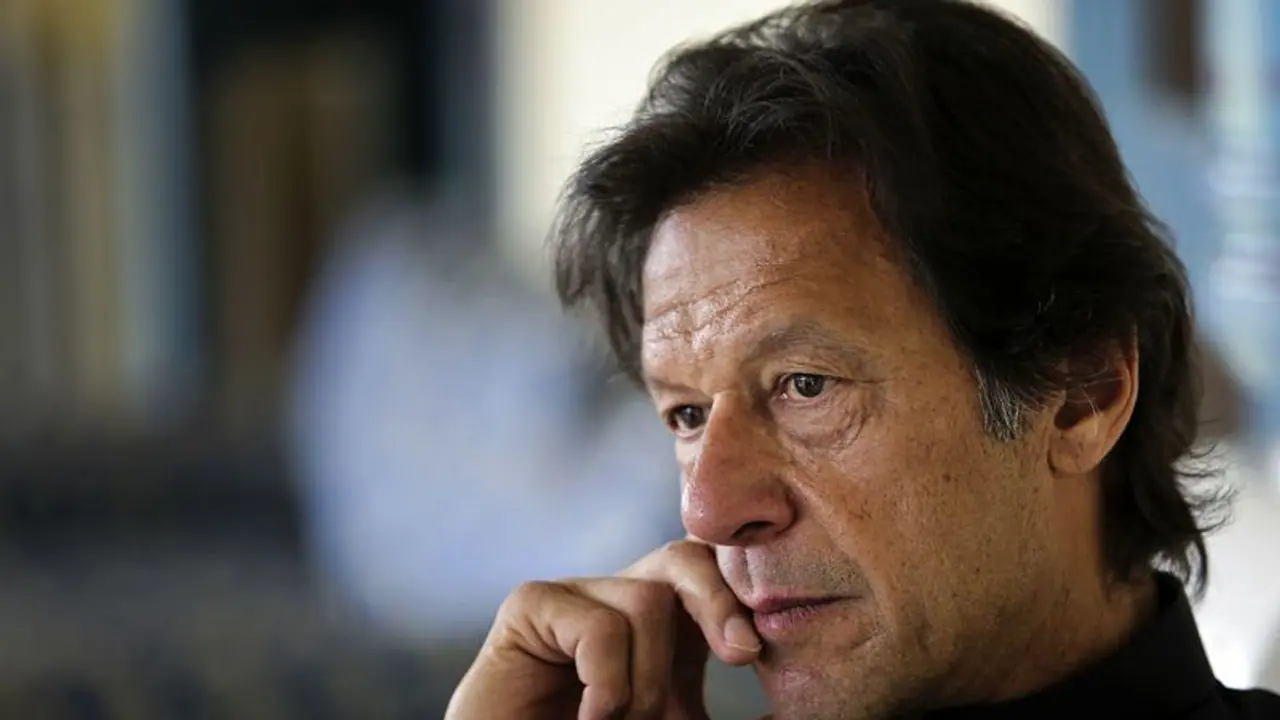With the atrocious speech of the kind Prime Minister Imran Khan used to address Pakistan on Tuesday morning, he has established he no longer has the grace expected of a sportsperson. Not that he had won fair play trophies in his career, but his current position certainly demanded statesmanship, and he failed miserably.
Imran Khan was a great all-rounder and a fine strategist as the skipper of Pakistan’s cricket team. As the Prime Minister of the so-called ‘Naya Pakistan’, however, he came across as a predictable Army-guided missile who dealt in clichés, played the victim card, unleashed momentary belligerence and, then, reflected on the need to avoid war.
Khan’s unease transpired during his shaky video address, which everybody had been waiting for ever since a 20-year-old Kashmiri suicide bomber named Adil Ahmed Dar rammed an SUV filled with explosives into a CRPF security convoy in Pulwama in South Kashmir, killing more than 40 CRPF jawans.
Did Khan's address satisfy his countrymen? His diffidence notwithstanding, it might have. But Indians, who are fed up of Pakistan’s proclivity for denial while nurturing and equipping terrorists for years, heard the resonance of stereotypes in everything he had to say.
Hear one of his statements. “Pakistan ko issey kya fayeda hai? Kyon Pakistan karega iss stage key upar jab Pakistan stability key taraf jaa raha hai?” (What will Pakistan gain out of this? Why should Pakistan do all this when it is heading towards stability?)
Pakistan is a failed jihadist state that breeds terrorists, and Khan failed to sound convincing even for a brief while. Trying to defend the indefensible can be difficult – even if the politician is a battle-scarred veteran of diplomatic one-upmanship which Khan is not.
Masood Azhar, who India wants listed as a global terrorist, is based in Bahawalpur. Jaish-e-Mohammed, the internationally recognised terrorist group, is operating out of Pakistan and has even claimed responsibility for the dastardly attack. Khan did not mention the Jaish monosyllable.
How could he?
Possibly under pressure to issue a statement and please the electorate, Khan stated the obvious by insisting that Pakistan had nothing to do with the cowardly attack. Taking that position is quintessentially Pakistan, and Khan came across as a new person saying the same old things.
He asked how Pakistan would benefit from such an attack while insisting that his country is the greatest victim of terrorism.
If Pakistan has nothing to gain from such attacks, why does it offer shelter to organisations like the Jaish? Khan did not enter into that disputed territory.
How could he?
He assured that he will act if India provides evidence, and is also prepared to discuss terrorism with his neighbour.
He did not talk about Pakistan’s refusal to act even after India offered proof in the past – as it did after 26/11 or the attack at the Pathankot airbase.
How could he?
And, he warned India too. If India attacks, he said, Pakistan won’t think of retaliating. It will retaliate.
He had to say that because he doesn’t have a choice. Most of his supporters hate India, and that is what they want to hear.
Khan pretends to be a progressive politician. But his statements showed that he has to bow to the wishes of his masters in his country.
An address of his kind will only intensify India’s disappointment with Pakistan, which continues to disrupt the former’s peace periodically and refuses to acknowledge its guilt later.
